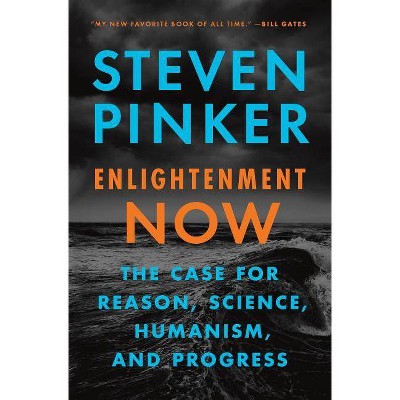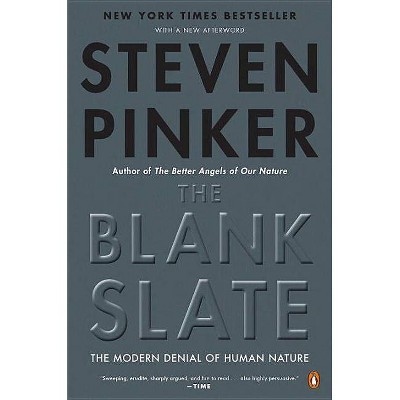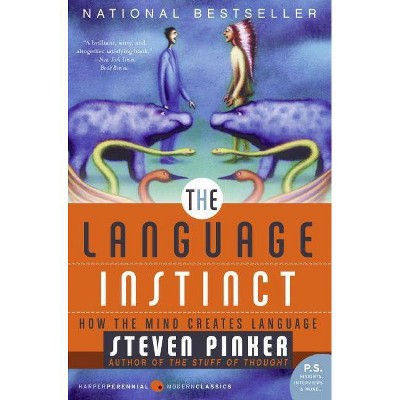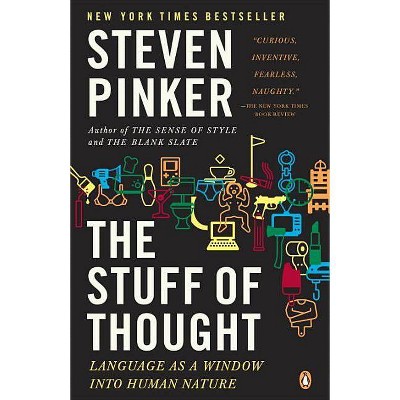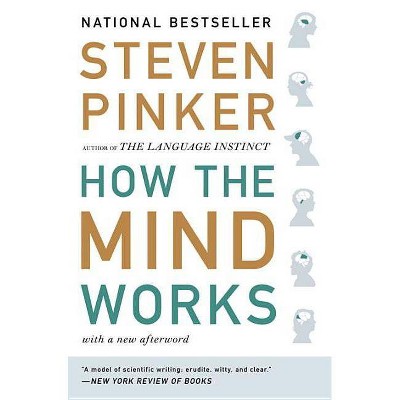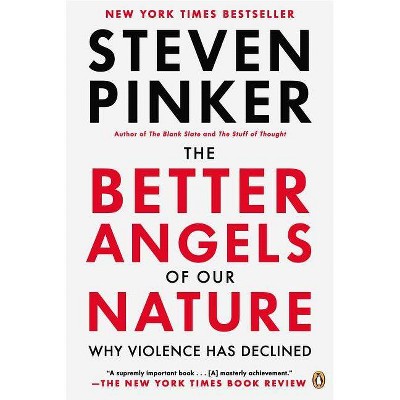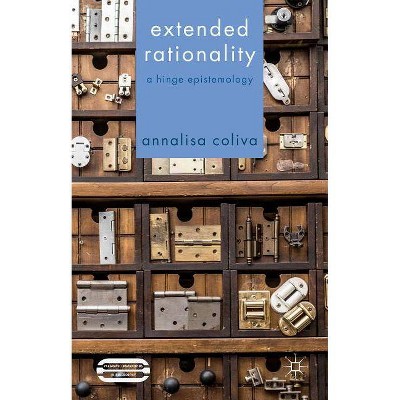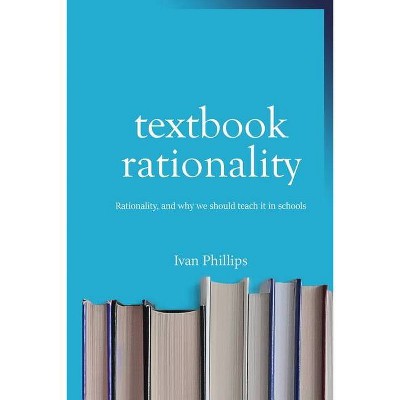Rationality - by Steven Pinker (Hardcover)
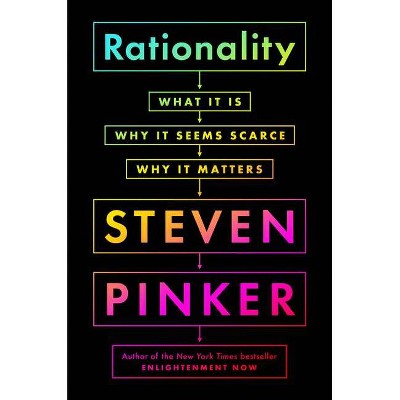
Similar Products
Products of same category from the store
AllProduct info
<p/><br></br><p><b> About the Book </b></p></br></br>"Can reading a book make you more rational? Can it explain why there seems to be so much irrationality in the world, including, let's be honest, in each of us? These are the goals of Steven Pinker's follow-up to Enlightenment Now (Bill Gates's "new favorite book of all time"). Humans today are often portrayed as cavemen out of time, poised to react to a lion in the grass with a suite of biases, blind spots, fallacies, and illusions. But this, Pinker a cognitive scientist and rational optimist argues, cannot be the whole picture. Hunter-gatherers--our ancestors and contemporaries--are not nervous rabbits but cerebral problem-solvers. A list of the ways in which we are stupid cannot explain how we're so smart: how we discovered the laws of nature, transformed the planet, and lengthened and enriched our lives. Indeed, if humans were fundamentally irrational, how did they discover the benchmarks for rationality against which humans fall short? The topic could not be more timely. In the 21st century, humanity is reaching new heights of scientific understanding--and at the same time appears to be losing its mind. How can a species that sequenced the genome and detected the Big Bang produce so much fake news, quack cures, conspiracy theories, and "post-truth" rhetoric? A big part of Rationality is to explain these tools--to inspire an intuitive understanding of the benchmarks of rationality, so you can understand the basics of logic, critical thinking, probability, correlation and causation, the optimal ways to adjust our beliefs and commit to decisions with uncertain evidence, and the yardsticks for making rational choices alone and with others. Rationality matters. As the world reels from foolish choices made in the past and dreads a future that may be shaped by senseless choices in the present, rationality may be the most important asset that citizens and influencers command. Steven Pinker, the great defender of human progress, having documented how the world is not falling apart, now shows how we can enhance rationality in our lives and in the public sphere. Rationality is the perfect toolkit to seize our own fates"--<p/><br></br><p><b> Book Synopsis </b></p></br></br><b><b><b><b><i>NEW YORK TIMES</i> BESTSELLER</b> <p/>"In our uncertain age, which can so often feel so dark and disturbing, Steven Pinker has distinguished himself as a voice of positivity." - <i>New York Times</i></b> <p/>Can reading a book make you more rational? Can it help us understand why there is so much irrationality in the world? Steven Pinker, author of <i>Enlightenment Now</i> (Bill Gates's new favorite book of all time") answers all the questions here</b><br></b> <br>Today humanity is reaching new heights of scientific understanding--and also appears to be losing its mind. How can a species that developed vaccines for Covid-19 in less than a year produce so much fake news, medical quackery, and conspiracy theorizing? <p/>Pinker rejects the cynical cliché that humans are simply irrational--cavemen out of time saddled with biases, fallacies, and illusions. After all, we discovered the laws of nature, lengthened and enriched our lives, and set out the benchmarks for rationality itself. We actually think in ways that are sensible in the low-tech contexts in which we spend most of our lives, but fail to take advantage of the powerful tools of reasoning we've discovered over the millennia: logic, critical thinking, probability, correlation and causation, and optimal ways to update beliefs and commit to choices individually and with others. These tools are not a standard part of our education, and have never been presented clearly and entertainingly in a single book--until now. <p/><i>Rationality</i> also explores its opposite: how the rational pursuit of self-interest, sectarian solidarity, and uplifting mythology can add up to crippling irrationality in a society. Collective rationality depends on norms that are explicitly designed to promote objectivity and truth. <p/>Rationality matters. It leads to better choices in our lives and in the public sphere, and is the ultimate driver of social justice and moral progress. Brimming with Pinker's customary insight and humor, <i>Rationality</i> will enlighten, inspire, and empower.<p/><br></br><p><b> Review Quotes </b></p></br></br><br>Erudite, lucid, funny and dense with fascinating material . . . A pragmatic dose of measured optimism, presenting rationality as a fragile but achievable ideal in personal and civic life. . . . It's no small achievement to make formal logic, game theory, statistics and Bayesian reasoning delightful topics full of charm and relevance.<b><i>--The Washington Post</i></b> <p/>"An impassioned and zippy introduction to the tools of rational thought... Punchy, funny and invigorating."<b><i>--The Times</i> (London) <p/></b>"An engaging analysis of the highest of our faculties and perhaps (ironically) the least understood" <b><i>--</i></b><i><b>The Wall Street Journal</b></i> <p/>"If you've ever considered taking drugs to make yourself smarter, read <i>Rationality</i> instead."<b><i>--</i>Jonathan Haidt, <i>New York Times </i>bestselling co-author of THE CODDLING OF THE AMERICAN MIND</b> <p/>"Pinker manages to be scrupulously rigorous yet steadily accessible and entertaining whether probing the rationality of Andrew Yang's presidential platform, Dilbert cartoons, or Yiddish proverbs. The result is both a celebration of humans' ability to make things better with careful thinking and a penetrating rebuke to muddleheadedness"<b><i>--Publishers Weekly</i> (starred)</b> <p/>"A reader-friendly primer in better thinking through the cultivation of that rarest of rarities: a sound argument."<b><i>--Kirkus Reviews</i></b><br><p/><br></br><p><b> About the Author </b></p></br></br><b>Steven Pinker</b> is the Johnstone Professor of Psychology at Harvard University. A two-time Pulitzer Prize finalist and the winner of many awards for his research, teaching, and books, he has been elected to the National Academy of Sciences and named one of <i>Time</i>'s 100 Most Influential People and one of <i>Foreign Policy</i>'s 100 Leading Global Thinkers. His books include <i>The Blank Slate, The Stuff of Thought</i>, <i>The Better Angels of Our Nature</i>, <i>The Sense of Style</i>, and <i>Enlightenment Now.</i><br/>
Price History
Cheapest price in the interval: 19.69 on October 22, 2021
Most expensive price in the interval: 19.69 on November 8, 2021
Price Archive shows prices from various stores, lets you see history and find the cheapest. There is no actual sale on the website. For all support, inquiry and suggestion messagescommunication@pricearchive.us
